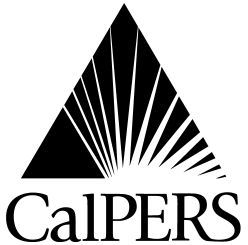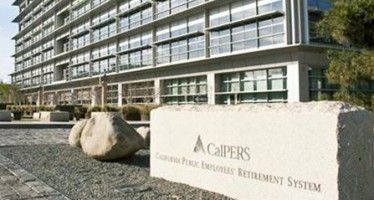State seeking to grab private pensions
June 21, 2012
By Katy Grimes
Because California is doing such a bang-up job of managing the state employee pension systems, some lawmakers are pushing to create and manage another retirement program–for the private sector.
According to Sen. Kevin de León, D-Los Angeles, “7 million Californians working in the private sector have no access to retirement programs, and 50 percent run the risk of retiring with no retirement savings, right into poverty.”
SB 1234, by de León and Senate President Pro Tem Darrell Steinberg, D-Sacramento, will supposedly remedy this problem by creating a retirement savings plan “for private workers who do not participate in any other type of employer sponsored retirement savings plan,” according to de León.
But some are saying that this bill is just an attempt to justify the high public employee pensions in California by extending the entitlement to the private sector.
This bill would establish the California Secure Choice Retirement Savings Investment Board, for the purpose of creating a statewide retirement savings plan for private workers.
But any private sector worker can already open up a retirement savings plan, such as a 401(k). And almost everyone pays into the federal Social Security program. So what’s the motive behind SB 1234?
Community organizing benefits
“Recent household surveys indicate that the bottom half of California workers are not being served by the existing system of workplace retirement plans,” said Nari Rhee, a researcher at the University of California, Berkeley’s Center for Labor Research and Education, and author of a new study.
De León, a former community organizer and civil rights activist, said at an Assembly hearing Wednesday that private-sector employers could enroll workers in a new “Personal Pension” defined-benefit program. At a February Senate hearing, de León said the only way the private employers then could get out of creating new personal pension programs would be if they already offer alternative employer-sponsored plans.
Bill analysis states that the new private pension board “would hire private firms to manage the investment portfolio and the retirement savings accounts, and also secure underwriting through private insurers to guarantee the rate of return on the retirement savings plans. CalPERS would also be eligible to bid on the contract to manage the investment portfolio.”
“Every Californian will be able to access this, especially those marginalized,” de León said. It would be “unique in this country,” according to de León, and “an opportunity to buy the American dream.”
De León said that the plan would be voluntary for employees (not employers), have low fees and be portable.
Once, twice, three times a pension
This isn’t de León’s first attempt to provide a new retirement plan administered by CalPERS. In 2009, de León authored AB 125, which would have created a California Employee Savings Program, And in 2008, he authored AB 2940, which was nearly identical to AB 125, according to bill analysis. Both bills were permanently stalled in the Senate.
De León had a veritable bastion of union supporters at the Assembly Labor and Employment Committee hearing on SB 1234. But the conundrum is that none of the union supporters would be impacted by passage of SB 1234 because they already have union pensions.
So what could be his motive?
Because de León is a well-known activist for Hispanic and Latino causes, many speculate that this is his attempt to provide retirement entitlements to workers in the Latino community.
According to the Berkeley study, “access is worst among low-wage workers (22 percent in the bottom quartile); employees of small firms with less than 100 employees (25 percent); and Latinos (32 percent).”
“A disproportionately large majority (64 percent) of workers without access to a workplace retirement plan are people of color, with Latinos making up the largest single share (46 percent) of the total,” the Berkeley study found.
De León’s proposal would require private-sector employers to offer retirement plans to all workers.
Despite the size of a company, whether it is seasonal or full-time employment, whether or not there is profitability, or whatever the type of business, the accountability issue is the biggest employers will have to mitigate. Requiring private-sector employers to provide retirement plans to all workers is an accountability nightmare waiting to happen, and will most likely benefit lawyers, accountants and third-party administrators.
The medium and small employers, who have to do everything in a business themselves, don’t have the means, the resources or even the government standards of accountability. Government requirements of accountability have become so complex that the average employer cannot currently manage compliance, much less after the State of California forces private sector pension plans onto private sector businesses.
The list of supporters, including such powerful unions as the California Teachers Association and the AFL-CIO, explains everything. (Full list included at the bottom of this article.) But remember that members of these unions already have union pensions.
The list of supporters demonstrates a definitive union and Latino interest. But that shouldn’t be of any surprise, as de León worked for years as an immigrant rights activist and union organizer, according to his alma mater, Pitzer College.
Pension gap
Not surprisingly, the Berkeley study concluded, “A publicly sponsored retirement savings program can close the pension gap and help workers build adequate and secure retirement income,” and offered the following conditions:
* “Automatic enrollment (with employee-level opt out) and automatic payroll deduction, combined with portability across jobs, would help millions of workers save easily and consistently throughout their careers.
* “A large plan in which professionals manage the pooled retirement savings of millions of workers can be more efficient and less costly compared to currently available IRAs and 401(k)s, and offer better insurance against investment risk—important factors for workers with modest incomes.
* “With a large risk pool, the plan can offer attractively priced life annuities compared to the individual market and thus offer secure monthly income throughout a worker’s retirement.”
GOP opposition
De León’s bill was met with opposition from Republican Assembly members. “I am concerned about adding another state mandate on employers, not seen in other states,” said Assemblyman Jeff Gorell, R-Thousand Oaks. “I am concerned about the income taken in and another stock market crash… underwriters can go under.”
“This seems like it will cost employers money,” Assemblyman Mike Morrell, R-Rancho Cucamonga, told de León at the hearing.
“That’s your opinion,” de León said. “I already went through this.”
Morrell asked de León if employee contributions were pre-tax or post-tax. But de León said that he didn’t know, leaving many to question what the benefit would be. Morrell suggested that, without a pre-tax benefit, anyone could open a savings account at a bank and make 1.5 percent interest.
Standard 401 (k) plans allow employees pre-tax contributions, and often, significant savings over the course of a year. But the plans are subject to federal ERISA laws, the Employee Retirement Income Security Act of 1974, which set minimum standards for pension plans in private industry if employee contributions are pre-tax.
The committee chairman, Assemblyman Sandre Swanson, D-Alameda, wrapped the hearing up with a surprising suddenness, preventing Morrell from asking all of his questions. So, I asked Morrell after the hearing what else he wanted to ask de Leon.
“I am an employer,” Morrell said. “What about commission sales people?” Morrell asked. “With regard to ERISA, is this a pre-tax or post-tax contribution? And low fees… to whom?”
“What if an employee has two or three jobs? Who does the bookkeeping, the employer or employee?”
Morrell said that de León said he was going to pull resources together to make the bill work. “What resources? What does he mean?” Morrell asked.
“This is lipstick on a pig,” said Morrell. “For de León to say that the employer will have no liability means nothing–they can change that.”
Lawmakers don’t appear to know crucial details about how this would plan work, but are willing to pass the bill first, so that we can see what’s in it. This is clearly a design-as-you-go bill, with serious implications.
List of supporters:
California Faculty Association, California Labor Federation, Latinos for a Secure Retirement, National Conference on Public Employee Retirement Systems, National Hispanic Council on Aging, SEIU Local 99, AFL-CIO, Greenlining Institute, California Professional Firefighters, California Retired County Employees Association, California School Employees Association, California Teachers Association, AARP-California, AFSCME, AFL-CIO, Association of California School Administrators, California Association of Psychiatric Technicians, Congress of California Seniors, Earned Assets Resource Network, Faculty Association of California Community Colleges, JERICHO, State Association of County Retirement Systems, TELACU.
Related Articles
Redevelopment 2.0 keeps flaws of the old redevelopment
This is Part Two of a two-part series. Part One is here. March 29, 2013 By Wayne Lusvardi Los Angeles-based
State pensions improve, but members living longer
Is it morning in California for the California Public Employees’ Retirement System and the California State Teachers’ Retirement System? Both CalPERS
Unions Might Seek 43% Tax Increase
JULY 10, 2011 By JOHN SEILER California’s government unions could seek a 43 percent tax increase on wealthy Californians. The Contra





